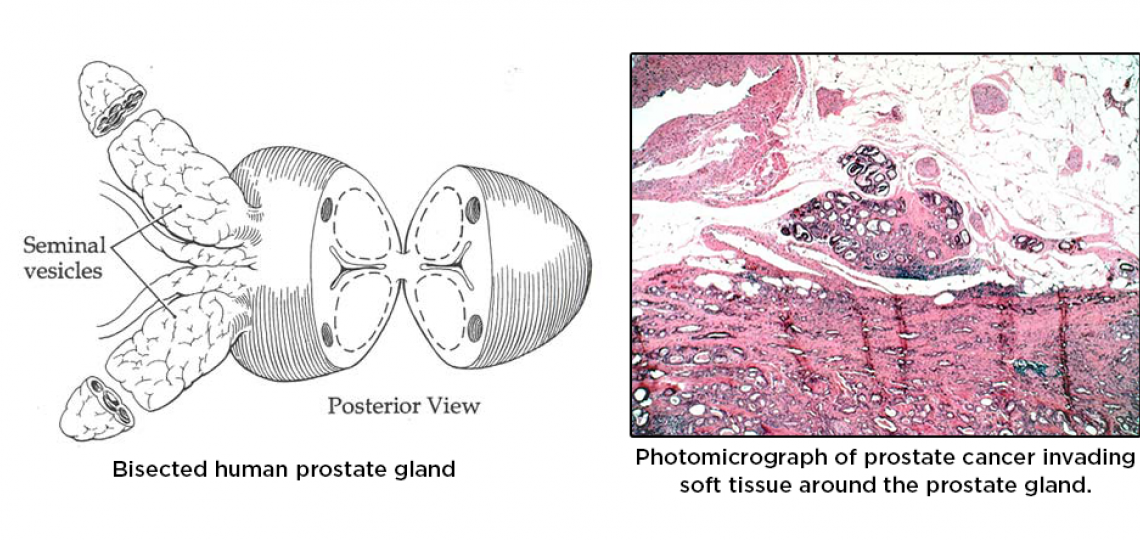Prostate cancer is the most common visceral malignancy and the second leading cause of cancer death among U.S. males, with over 29,000 deaths in 2004 attributable to this disease. Age is the strongest risk factor, followed by ethnicity.
Prostate cancer is extremely heterogeneous in its clinical behavior, ranging from indolent disease to aggressive, metastatic cancer with rapid mortality. While much has been learned in recent years about the molecular alterations associated with prostate carcinogenesis, a complete understanding of the pathogenesis of this common malignancy remains elusive. The optimal treatment for men with localized prostate cancer remains controversial while current treatments of metastatic prostate cancer are rarely curative.
Fibroblast growth factors, including FGF1 (acidic FGF), FGF2 (basic FGF), FGF6, and FGF8 are all expressed at increased levels in prostate cancer as paracrine and/or autocrine growth factors for the prostate cancer cells. Prostate cancer epithelial cells express all four types of FGF receptors (FGFR 1-4) at variable frequencies. Expression of FGFR-1 and FGFR-4 are most closely linked to prostate cancer progression, while the role of FGFR-2 remains controversial. Activation of FGF receptors can activate multiple signal transduction pathways including the phospholipase C, phosphatidyl inositol 3-kinase, mitogen-activated protein kinase and Stat pathways, all of which play a role in prostate cancer progression.
Sprouty proteins can negatively regulate FGF signal transduction, potentially limiting the impact of FGF signaling in prostate cancer, but in a significant fraction of prostate cancers there is decreased expression of Sprouty1 mRNA and protein. The effects of increased FGF receptor signaling are wide-ranging and involve both the cancer cells and surrounding stroma, including the vasculature. The net result of increased FGF signaling include enhanced proliferation, resistance to cell death, increased motility and invasiveness, increased angiogenesis, enhanced metastasis, resistance to chemotherapy and radiation and androgen independence, all of which can enhance tumor progression and clinical aggressiveness.
For this reason, the FGF signaling system it is an attractive therapeutic target, particularly since therapies targeting FGF receptors and/or FGF signaling can affect both the tumor cells directly and tumor angiogenesis. A number of approaches that could target FGF receptors and/or FGF receptor signaling in prostate cancer are currently being developed.

Prostate Cancer overview.
Related Publication
Kwabi-Addo B, Ozen M, and Ittmann M. 2004. The role of fibroblast growth factors and their receptors in prostate cancer. Endocrine-related Cancer 11: 709-724.








